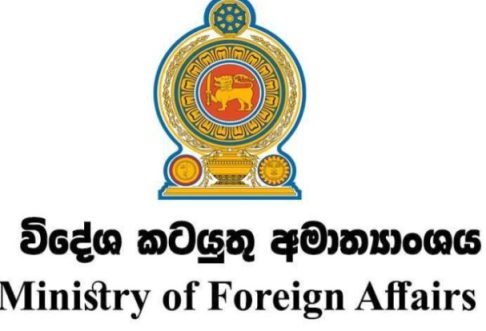After several months of closed-door negotiations and shuttle diplomacy, the United States succeeded Wednesday in getting a new Security Council resolution – the fourth in a series – imposing a fresh set of sanctions penalising Iran for its nuclear programme.
But the most powerful political body at the United Nations refused to give the United States what it needed most in diplomatic terms: a unanimous vote.
The final head count was 12 in support of the resolution, with two against (Turkey and Brazil), and one abstention (Lebanon).
The negative votes were from two countries that not only asserted their growing regional superpower status but also opted for negotiations over sanctions: a move rejected by the United States.
The 12 positive votes included the five veto-wielding permanent members – the United States, Britain, France, China and Russia – along with Austria, Bosnia and Herzegovina, Gabon, Japan, Mexico, Nigeria and Uganda.
The last three resolutions against Iran, however, were diplomatically more positive towards the United States: all 15 members of the Security Council voting unanimously in 2006 and 2007, but with one abstention (Indonesia) in the 2008 vote.
The resolution adopted Wednesday imposes several new sanctions, including a ban on eight broad categories of heavy weapons; a new cargo inspection framework on board Iranian vessels; new banking measures; a ban on Iranian nuclear and missile investments abroad; and new measures to limit the role of the Islamic Revolutionary Guard Corps.
In remarks from the White House, U.S. President Barack Obama described the resolution as "the toughest sanctions ever faced by the Iranian government".
"It sends an unmistakable message about the international community's commitment to stopping the spread of nuclear weapons," Obama said. "So, there's no double standards at play here," he added, trying to implicitly respond to longstanding charges that Israel is not held to the same standards as Iran.
"We've made it clear, time and again," said Obama, "that we respect Iran's right, like all countries, to access peaceful nuclear energy."
That's a right embedded in the Nuclear Non-Proliferation Treaty (NPT), he declared.
The Iranians, however, have pointed out that Israel is not a signatory to the NPT, but Iran is. And Iran has also consistently taken the position it is developing nuclear energy, not nuclear weapons.
Addressing delegates Wednesday, Ambassador Mohammad Khazaee of Iran blasted the Security Council for its "unrestrained and rampant double standards".
He called upon the "powerful members of the Council" to provide answers to many legitimate questions raised internationally with regard to the lopsided behaviour of the 15-member body.
The questions crying out for answers from a non-responsive Security Council, he said, include threats of resort to force against Iran both by the United States and Israel; refusal by the Council to take action proposed by the U.N. Goldstone Commission on war crimes committed by Israel in Gaza; continued "massive aggression" by Israel against Lebanon and Palestinians in the occupied territories; and refusal of the Council to condemn the "massacre" on board a ship carrying humanitarian aid to Gaza last month.
"There should also be an answer as to why this Council has not given the slightest chance of addressing Israel's nuclear arsenal despite its compulsive propensity to engage in aggression and carnage," he said.
In a statement issued after the vote, Brazil said it does not see sanctions as an effective instrument in this case.
"Sanctions will most probably lead to the suffering of the people of Iran and will play into the hands of those, on all sides, who do not want dialogue to prevail," the statement said.
Brazil and Turkey, the two countries voting against the resolution, negotiated an agreement last month to transfer some of Iran's nuclear fuel to Ankara. But this agreement was not acceptable to the United States.
Norman Solomon, executive director of the Washington-based Institute for Public Accuracy, was critical of the continued double standards on nuclear disarmament.
"It's not too convincing to claim to support the goal of a nuclear-weapons-free Middle East while winking and nodding at Israel's sizeable nuclear arsenal," he told IPS. "The region should be de-nuclearised. That is our best hope for halting proliferation and stabilising the spiral of existential threats, real or imagined."
The selective invocations of the NPT, he pointed out, go only so far before many people notice the hypocrisies involved. "Do as we say, not as we do has never been a very convincing stance".
"The United States government has a responsibility to fulfill its NPT obligations, and has failed to do so; even the mild step of officially ratifying a comprehensive test ban treaty has been elusive in Washington," said Solomon, author of "War Made Easy: How Presidents and Pundits Keep Spinning Us to Death."
Speaking on condition of anonymity, a Third World diplomat told IPS that a unanimous vote would certainly have sent a more powerful message. Under the circumstances, however, the adoption of the resolution will be a diplomatic blow to Iran, he added.
"It is unlikely to stop them from continuing with their uranium enrichment programme but it will certainly make it that much more difficult for them to achieve their goals," he said.
The diplomat said it will also have spillover consequences in other areas as countries hold back from doing business with Iran.
"The Iranians will survive but they will feel the effects of the sanctions. Otherwise, why would they be making an effort to persuade members of the Security Council to re-think their position, as evidenced by (Iranian President Mahmoud) Ahmedinijad's visits to the countries represented in the Council?"
Melissa T. Labone, assistant professor of political science at Fordham University, dismissed the resolution as "pure window dressing".
"The (U.S.) State Department applied massive leverage with other countries," she said, "I am loathe to imagine what kind of trade-offs it had to make to garner support, especially from China and Russia – or even to get the Lebanese to abstain, as opposed to voting no."
Stephen Zunes, professor of politics and international studies at the University of San Francisco, told IPS that pushing through increased sanctions rather than building on the deal put together by Security Council members Brazil and Turkey raises questions as to whether the United States was more interested in a punitive approach than a negotiated settlement.
"It could very well inflame the nationalist reaction in Iran, where the pro-democracy opposition shares the hard- line government's resentment at the U.S.-led campaign against the country's nuclear programme," he added.
On a positive note, said Zunes, the protracted negotiations among Security Council members resulted in sanctions that remain targeted at the Iranian military and other elite elements, not the general population.
"As a result, Ahmadinejad will not have the international community to blame for his failed economic policies and the hardships resulting from increased privatisation and reduced subsidies," he declared.
Solomon of the Institute for Public Accuracy told IPS: "What's needed is an evenhanded approach that can help to de-escalate tensions in the region while coming to terms with the real threats posed by nuclear proliferation."
Double standards and threatening rhetoric may be convenient, but they delay the necessary hard work of reconfiguring international relations to overcome reliance on brandishing huge arsenals to intimidate neighboring countries, said Solomon, co-author of "Killing Our Own: The Disaster of America's Experience with Atomic Radiation".
Post Disclaimer | Support Us
Support Us
The sailanmuslim.com web site entirely supported by individual donors and well wishers. If you regularly visit this site and wish to show your appreciation, or if you wish to see further development of sailanmuslim.com, please donate us
IMPORTANT : All content hosted on sailanmuslim.com is solely for non-commercial purposes and with the permission of original copyright holders. Any other use of the hosted content, such as for financial gain, requires express approval from the copyright owners.
 Sri lanka Muslims Web Portal Sri Lanka Muslims News Center
Sri lanka Muslims Web Portal Sri Lanka Muslims News Center
 Donate
Donate


